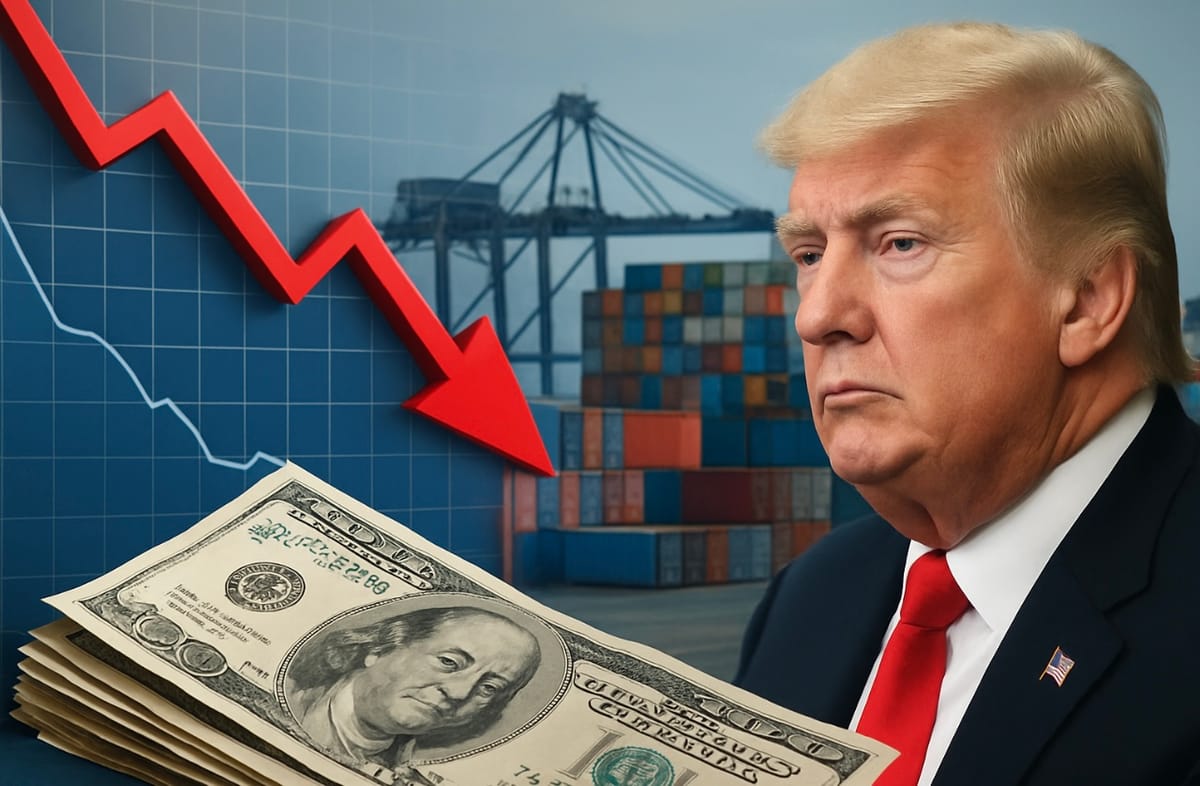US Trade War Triggers Global Economic Slowdown in 2025
OECD predicts global economic growth in 2025 will slow due to the US trade war, sparking market turmoil and high inflation.

Global Economy 2025 Faces Slowdown Amid US Trade War
Global economic uncertainty is mounting as the Organisation for Economic Co-operation and Development (OECD) releases its latest report. The international body projects global economic growth will slow to 2.9% in 2025 and 2026, marking the lowest rate since the COVID-19 pandemic. The main trigger behind this slowdown is the escalating trade war, sparked by high US tariffs under President Donald Trump.
Direct Impact of US Tariff Policy
Since early 2025, US tariffs have surged from an average of 2.5% to over 15%, the highest since World War II. This spike has immediately increased import costs and prompted retaliatory tariffs from US trading partners. According to the OECD, the United States, China, Canada, and Mexico are among the countries most affected by these negative impacts. Meanwhile, the Eurozone and Japan are also experiencing slower economic growth, albeit more moderately.
Global Growth Weakens
The OECD emphasizes that US economic growth is projected to drop sharply from 2.8% in 2024 to 1.6% in 2025. Meanwhile, China’s growth also weakens from 5% to 4.7%. Other countries, such as the UK and India, are feeling the impact of slower global trade and disrupted supply chains.
Rising Inflation and Declining Consumer Purchasing Power
Protectionist policies are pushing US domestic inflation close to 4% by the end of 2025. Consumer goods prices are rising, squeezing purchasing power and slowing domestic consumption. The US budget deficit is also expected to swell to 8% of GDP by 2026, driven by a mix of government spending and tax cuts.
Global Stock Markets Tumble
The ripple effects of US tariffs are clear in financial markets. The announcement of new US tariffs in April 2025 triggered the sharpest global stock market drop since 2020. Major indexes like the S&P 500 and Nasdaq plunged, highlighting investors’ concerns about the long-term effects on global growth and corporate performance.
Impact on Manufacturing and Supply Chains
Manufacturing sectors in the US and partner countries have been hit by rising raw material costs and disrupted supply chains. Many producers are holding back investment and cutting production. Countries like Canada and Mexico have introduced retaliatory tariffs, escalating trade tensions and prolonging market volatility.
OECD Calls for International Dialogue
The OECD issues a stern warning: increased trade barriers and ongoing policy uncertainty will further weaken global economic prospects. The organization stresses the urgent need for international dialogue to resolve the trade war and seek collaborative solutions for sustainable growth.
Recommendations and Solutions
The OECD urges major economies to refrain from further protectionist measures and open constructive dialogue immediately. Global collaboration is seen as vital to easing inflationary pressures, strengthening consumption, and maintaining financial market stability.





Comments ()